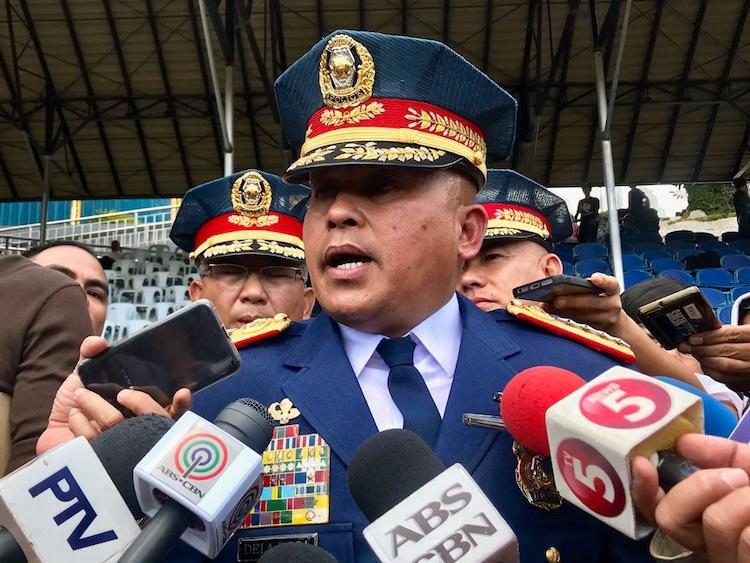SUMMARY
This is AI generated summarization, which may have errors. For context, always refer to the full article.

MANILA, Philippines – In response to the probe of the International Criminal Court (ICC) into the Philippines’ controversial drug war, Philippine National Police (PNP) chief Director General Ronald dela Rosa maintained that they are not hiding anything.
“Wala kaming tinatago, malaman nila ‘yan kapag mag-iimbestiga sila na hindi pala ito utos ni Presidente, hindi pala ito state-sponsored,” Dela Rosa told reporters during the Philippine Military Academy (PMA) Homecoming in Baguio City on Saturday, February 18.
(We are not hiding anything, they will find out that this isn’t an order of the President, that this isn’t state-sponsored.)
Dela Rosa had given similar remarks during the Supreme Court (SC) oral arguments which started last year.
And just as the PNP did with the SC, it won’t be sharing its drug war documents fully should the international tribunal make a request.
“It has a qualification (transparency in ICC probe), transparent but not to the extent that we will fall into their trap,” Dela Rosa said.
The ICC is still in its preliminary examination phase, which would determine whether the Philippines has “genuine” proceedings to stop the drug war killings. (READ: EXPLAINER: ICC’s track record and what it means for Duterte and the PH)
On the part of the PNP, it has the Internal Affairs Service (IAS) which oversees administrative probes into cops who have at least fired a gun during operations. At least 125 cops have been penalized for drug war-related offenses.
It also has a Counter-Intelligence Task Force that looks into anomalies involving cops, including those in the anti-narcotics campaign.
Dela Rosa then repeated the reason why the PNP won’t share all its files with the ICC, in case they ask: that sharing drug war documents may lead to a leak of information. The PNP chief fears that drug war documents may land on the tables of drug syndicates, allowing them to plan revenge ambushes.
Asked why he thinks the case would be the same for the ICC, even though it is located all the way in the Netherlands, he claimed that the tribunal’s probe, in the first place, is “politically motivated.”
“For all you know, ‘yung investigation na ‘yan ay nagsimula ‘yan sa paninira, so politically motivated. Ikaw bigay ka lang nang bigay hanggang papasok ka sa trap nila?” Dela Rosa asked.
(For all you know, that investigation started from pure bad-mouthing, so it’s politically motivated. Will you give and give all until you fall into their trap?)
ICC impact?
Beyond statements, however, the PNP has made some adjustments to the drug war in response to the SC proceedings. It crafted tighter rules to prevent cops from going rogue during the campaign.
Notable changes include police visits being limited to only during daytime, the mandatory presence of human rights advocates in drug operations, and the use of body cameras. (READ: How the ‘new’ Oplan Tokhang should be done)
The petitions currently being heard are asking the SC to declare the PNP’s drug war blueprint, Oplan Double Barrel, as unconstitutional for allowing cops to abuse the campaign.
These changes in guidelines have pleased no less than the Commission on Human Rights (CHR), one of the PNP’s staunchest critics.
With the new rules, the PNP hopes that the SC will rule in its favor.
If the ICC does decide to conduct a full-blown trial on the drug war, will the PNP shift its gears once more or will it stand by its new rules? – Rappler.com
Add a comment
How does this make you feel?
There are no comments yet. Add your comment to start the conversation.